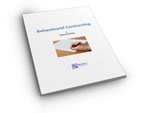 There are fundamentally four coaching bodies in the UK for you to consider apart from the professional body for psychologists who are also coaches known as the Special Group in Coaching Psychology aimed at bringing together psychologists who offer coaching via the growing field of coaching psychology. The British Association for Counselling and Psychotherapy(BACP) has recently set up a ‘therapist/coach’ offering for therapists who are also coaches offering coaching under the specialist coaching psychology banner that the psychologists subscribe to.However the four key generic professional bodies in the UK who are not linked specifically to coaching psychology are:
There are fundamentally four coaching bodies in the UK for you to consider apart from the professional body for psychologists who are also coaches known as the Special Group in Coaching Psychology aimed at bringing together psychologists who offer coaching via the growing field of coaching psychology. The British Association for Counselling and Psychotherapy(BACP) has recently set up a ‘therapist/coach’ offering for therapists who are also coaches offering coaching under the specialist coaching psychology banner that the psychologists subscribe to.However the four key generic professional bodies in the UK who are not linked specifically to coaching psychology are:
The Association for Coaching UK (AC UK) is part of the global Association for Coaching offering. Although the AC started its operations in the UK it has spread throughout the world and now has a number of countries interested in its offering who are setting up associations in their country of origin.
The International Coaching Federation UK (ICF UK) which is part of ICF Global offering. The ICF originated in America and now has a number of chapters across the world.
The European Mentoring and Coaching Council (EMCC) originated in the UK but now takes in the whole of Europe.
The Association for Professional Executive Coaches (APECS) was also set up in the UK. This body not only caters to the needs of coaches but also for coaching supervisors.
At this point you probably wonder why so many bodies and which one do you choose? Coaching is a relatively young profession and some would say it is not even a profession at this point in time. However, as with Psychology and Counselling it takes time to set the most useful infrastructure. All of these bodies came into being at different times with similar and yet different agendas.
Which body you decide to join is down to what you want to get from a professional body. In some ways they offer similar benefits – e.g. coach accreditation, coach competencies and coach support. However, they are also very different in character. Therefore when deciding which professional coaching body you think is best for you, you need to read their mission statements and also download the accreditation materials and associated documents from their websites. It is also helpful to talk to other coaches about which body they belong to and why. In some cases you will find that a coach belongs to more than one. All of the bodies may offer accreditation or events so you could be forgiven for wondering what’s different. To answer this question I would have to say that their organizational personalities are at the heart of what makes each one of them unique.
It is possible to speak to one coach who says that one body is great at offering coach support while another may say that a different professional body offers better materials. This is where your personal preference comes into play. What are you looking for? For example, robust accreditation processes?Links to other coaches? Needing relevant events and conferences on topics of interest? The need for you to be kept up-to-date on recent developments in the coaching world? Support in your coaching practice etc?
I would like to give you a definitive answer to these questions but I cannot at this point in time. What I can do is help you navigate what is out there. I am Chair (and Fellow) of the Association for Coaching UK so you can see that I have chosen one professional body over another. However, at one point I was also an active member of the EMCC and sat on their ethics committee.
You may be interested in knowing that all of the UK professional bodies meet about once every 6/8 weeks to discuss common interests. This meeting is called a ‘Roundtable’ and subjects such as an agreed code of ethics; comparisons on accreditation and coach supervision have been on the agenda. Although at the moment each of the professional bodies continues to develop its own unique style and offerings all of the bodies also recognize that there is value to individual coaches and organizations in sharing ideas and resources to the benefit of the coaching profession, coaches and coaching purchasers. This collaborative way of working benefits all but also allows for individual differences to be respected.






